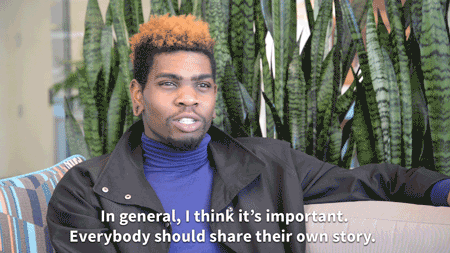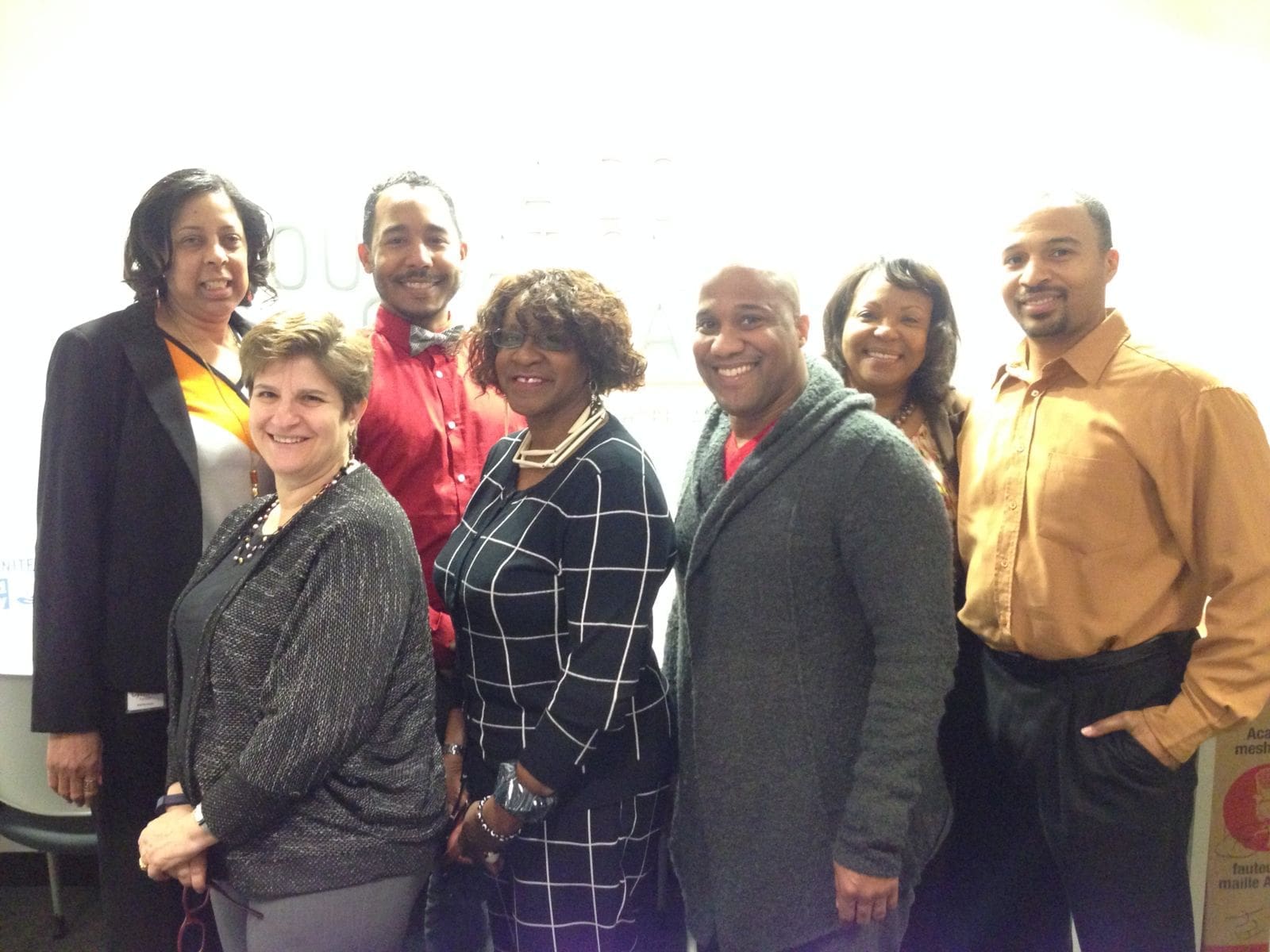by Megan Moran, development assistant
Not many people have sat face-to-face with Governor Bruce Rauner since his January 2015 inauguration and been offered the chance to represent their community in conversation with him. But Roy Ballesteros did — and he has done so much more on behalf of the HIV community in Springfield this spring.
Ten years ago, Ballesteros wouldn’t have guessed he would be having a conversation with the governor of Illinois. In his lifetime, he has faced no shortage of struggle: abusive family life, incarceration, drug use, broken relationships and severe health complications. For years, Ballesteros lived a transient lifestyle, moving from city to city in the Midwest and the South, arriving in each new place with hope for a better life — but the downward spiral of drug use pulled him down time and again.
“Though I had good times there [Boystown in Chicago], it was all centered around the wrong things …The very minimal good times I had led to maximized hardship, heartaches, broken relationships,” says Ballesteros. “[It was] a drug-fueled rollercoaster of a life.”
After several false starts, discovering his HIV-positive status and experiencing a life-threatening heart infection, Ballesteros describes “the true break in his life” toward recovery occurred when he moved back to Chicago in late 2014. Initially homeless on his return, a friend referred him to the Salvation Army’s North Side Adult Rehabilitation Center (ARC).
“Eight months later, I am here with a life worth living and an inner peace that I haven’t had since I was really young,” says Ballesteros. “The tools I’ve gained here are the foundation to a life of honesty, faith, mended relationships and self-respect!”
The work therapy program at the Salvation Army has helped tremendously to rebuild his confidence, personal responsibility and employment skills. Through counseling, Ballesteros has brought to light deeply buried emotional burdens, allowing him to break free of them and walk the path to healing his broken relationships. Today, for the first time in five years, he is both sober and has an undetectable viral load. All of these positive life changes he credits to a newfound relationship with God that inspires him to stay healthy and motivated.
As Ballesteros was rapidly rebuilding his life at the Salvation Army, he got connected to the HIV advocacy work of the AIDS Foundation of Chicago (AFC) and its partners. Ballesteros speaks with a gripping passion and down-to-earth, no-nonsense attitude about the realities of living with HIV. Right away, his natural storytelling ability got him noticed at a community forum at the Center on Halsted regarding the Illinois state budget cuts facing HIV and other social services.
“Roy is a testament to the notion that you become remarkable when you start believing you can do things,” says Ramon Gardenhire, vice president of Policy and Advocacy for AFC. “Roy has turned into an amazing advocate for ensuring that the state budget adequately funds HIV and other critical services.”
“We can say ‘budget cut’ — but what in the budget are we cutting?” Ballesteros asks this question to get at the heart of the matter: human lives are ultimately at stake with the life-threatening budget cuts that will impact thousands of Illinois’ most vulnerable citizens.
His primary strategy to connect with legislators is to seek common ground on which to humanize the issue, bringing the conversation back to an emotional, tangible level. This strategy led to his attendance at Advocacy Day in April, a daylong event in Springfield to mobilize the HIV community, connect participants to their legislators and lift up the needs of people living with and vulnerable to HIV. Ballesteros not only used this tactic when he spoke face-to-face with Governor Rauner at that event alongside representatives from Equality Illinois and the Phoenix Center, but he also taught it to his fellow advocates in a debriefing session with the 50 advocates who attended.
“Everybody’s story is just as powerful as mine,” he says, making a comparison to the recovery process. “Just because someone was only an addict for two years and I was for 10 doesn’t make their story any less powerful than mine.”
The bottom line for Ballesteros is that these budget cuts simply cannot happen because people will die without the services that are currently on the chopping block. He believes that the best way to make change is to educate others about HIV and emphasize the necessity of public support for prevention and treatment. He calls on the HIV community to share stories and knowledge — not only with the general public, but also with those who have the power to influence policy.
Looking ahead for Ballesteros, he has graduated from the Salvation Army’s program and taken next steps toward employment and independent, healthful living. His most adamant goal now is to pay it forward, helping connect others to the same quality treatment and care that he received. Wherever his journey takes him next, he will continue to take care of his health, speak up ardently for the HIV community and tell his story, motivating others to do the same.
The fight against the state budget cuts is not over, and Illinois legislators need to hear your story! The new fiscal year begins on July 1, 2015 – if a budget solution is not reached by then, numerous programs, including those available to people living with HIV, may be forced to decrease the services they offer or even shutter their doors altogether.
Use our contact form to send your elected officials a message that we need a revenue solution!
Sign our petition to declare the AIDS Drug Assistance Program (ADAP) an essential service, which would allow the program to continue during a government shut-down.


